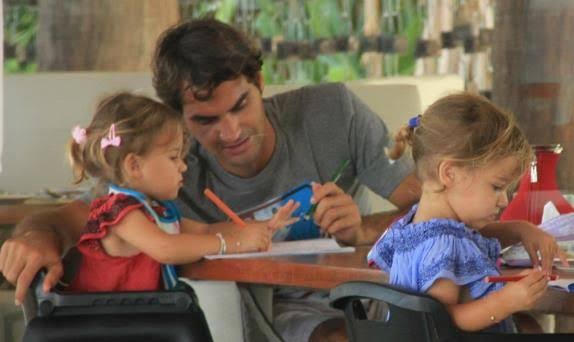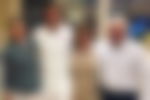

Swiss tennis legend Roger Federer wants to learn the West Germanic language spoken in South Africa. Ironically, Federer, who is multilingual does not speak Afrikaans in spite of his mother being a native. However, does Federer’s children know the Afrikaans language?
Federer’s mother Lynette grew up in Johannesburg. However, she moved to Switzerland after meeting her Swiss-born husband Robert Federer. The Basel native, who will play in South Africa for the first time, opened up about his extended family in the country and his South African roots.
ADVERTISEMENT
Article continues below this ad

“My Afrikaans is very very limited”: Roger Federer
The 38-year-old was happy to be back in Africa as he has a family there. However, the 20-time Grand Slam champion hesitate to speak Afrikaans as his parents did not teach him the language.
“I don’t know, I know a little bit. But I have to still go through them before I crack them out,” he admitted at the press briefing in Cape Town.

He revealed that he still hear his mother speak Afrikaans to her family all the time when she’s on the phone. So he likes his Afrikaans and he understands maybe 20-30 percent.
“It doesn’t feel far away but she taught me English. I don’t know if that’s a mistake or not but my Afrikaans is very very limited,” he further added.

Also Read: “I Couldn’t Be More Excited”: Roger Federer Opens up on Exhibition Against Rafael Nadal
“Afrikaans is still on the to-do list”: Federer
“My girls speak three (languages) Slovakian, Swiss-German and then English. And the boys understand all three. Afrikaans is still on the to-do list. I have to tell Granny to do a better job,” he joked.
ADVERTISEMENT
Article continues below this ad
Roger Federer is scheduled to play a charity match against arch-rival Rafael Nadal on 7th February in Cape Town. The pair is expected to raise $1 million for the Roger Federer Foundation in front of a record-breaking crowd of 50,000.

ADVERTISEMENT
Article continues below this ad
The foundation supports early childhood education in Switzerland and six African countries. It has already reached more than a million children in its history.
ADVERTISEMENT
ADVERTISEMENT
ADVERTISEMENT
ADVERTISEMENT

